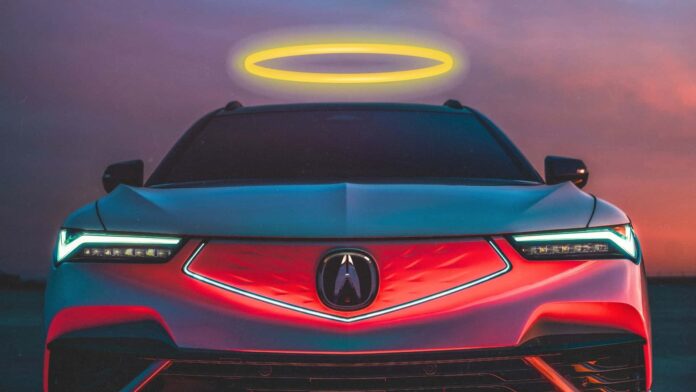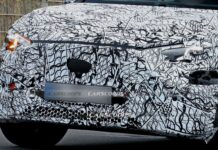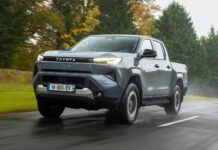The electric vehicle (EV) market, once brimming with optimism, is experiencing a period of significant turbulence. Several highly anticipated EVs slated for the 2026 model year are facing production delays or outright cancellations. This trend reflects broader challenges in the sector, raising questions about consumer demand, government policy, and automakers’ strategies.
Several factors contribute to this wave of EV setbacks: sputtering charging infrastructure, wavering government incentives shifting towards tariffs, and tightening budgets for both consumers and manufacturers.
These hurdles are prompting automakers to react swiftly, pulling plug on some models or delaying others. Here’s a look at ten EVs that won’t make it to the 2026 model year:
Lost in Translation: The Acura ZDX
After only one model year on sale, Acura is discontinuing its first-ever electric vehicle, the ZDX. Despite reaching an impressive range of 313 miles and boasting a powerful Type S version with 499 horsepower, the crossover failed to resonate with buyers. Its Chevrolet Blazer DNA was too transparent, and driving experience fell short of expectations. Ironically, Acura has sold more ZDXs in its brief lifespan (nearly 12,000 in 2025) than the original ZDX managed throughout its entire run.
Muscle Car Meets Missed Opportunity: Dodge Charger SRT Daytona Banshee
Dodge aimed to electrify its iconic muscle car with the supercharged triple-motor Daytona Banshee, promising a staggering 900 horsepower. However, internal sources indicate this halo EV is no longer in development. The regular Daytona hasn’t exactly set the sales charts ablaze, and perhaps the roaring V-8 engine was always at the heart of its appeal.
Lost in the Luxury Maze: Genesis Electrified G80
Despite offering impressive performance and quality, the Genesis Electrified G80 struggled to carve out a niche. As an undermarketed electric luxury sedan from a relatively young brand, it lacked the clout of established players like Mercedes or BMW. The limited sales territory further hindered its visibility.
Supercar Silenced: Maserati MC20 Folgore
Maserati’s plans for an electric version of the MC20 supercar, dubbed the Folgore, have quietly been shelved. While a facelifted MC20 with a new name, MCPura, has taken center stage, it seems the “Folgore” moniker was deemed too closely tied to the car’s combustion engine counterpart.
The Mercedes EQ Family Stumbles: Mercedes-Benz EQB / EQE / EQS Sedan & SUV
Mercedes-Benz is facing challenges with its electric lineup, particularly in North America. The brand paused production of its EQB, EQE, and EQS sedans and SUVs (though they remain available elsewhere) due to sluggish sales. The EQ family has garnered criticism for its polarizing design, questionable branding (“EQ Technology”), and gimmicky technology like the Hyperscreen dashboard.
Shifting Sands: Nissan Ariya
After just three years on sale, the well-designed Nissan Ariya is exiting the US market after 2025. Fierce competition and mediocre sales in a shrinking EV sector, coupled with tariffs on its Japanese-built production and slowing overall demand for EVs have contributed to this decision. Nissan’s focus now shifts towards the redesigned Leaf, offering value and range at an accessible price point.
Tariff Trouble: Polestar 2
The attractive Polestar 2, a Tesla Model 3 rival, is taking an indefinite break from the US market due to tariffs on its Chinese-built vehicles. While it received a refresh for 2024 with improved range and quicker charging times, those benefits haven’t been enough to overcome trade barriers.
Porsche Delays Flagship: Porsche Cayenne Electric Prototype
Initially planned alongside a larger flagship SUV (codenamed “K1”) the electric Cayenne is still on track for its 2026 debut. However, the launch of the K1 has been pushed back indefinitely, with gas-powered and plug-in hybrid versions taking precedence. The high expectations surrounding the technologically advanced “K1” may be contributing to this delay.
Ram’s Electric Pickup Ditched: Ram 1500 REV
Stellantis quietly confirmed the demise of its long-promised all-electric Ram pickup truck, originally slated for a 2024 launch and then pushed to 2026. The project has been scrapped altogether, with the plug-in hybrid model previously known as the Ramcharger now adopting the name “Ram 1500 REV.”
What’s Next?
These cancellations signal a period of recalibration within the EV industry. Automakers are carefully evaluating market conditions, production costs, and consumer demand before committing to new models. Whether these delays signify a temporary setback or a more fundamental shift in consumer sentiment remains to be seen. The next few years will likely reveal which EVs truly resonate with buyers and which strategies prove successful in navigating the evolving landscape of electric transportation.






































